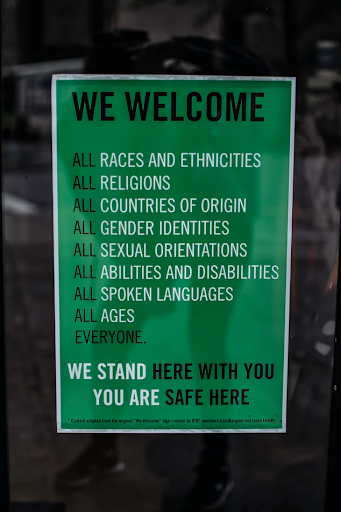Why Representation Matters
4 min read•november 14, 2021
A
Always Represented
College Process 🏫
124 resourcesSee Units
Why Representation Matters

Image from Unsplash
by Always RepresentED
First, What is Representation? 🤔
Representation reflects the demographics of the student body, community, workplace, etc., being served. That said, representation on university and college campuses provides a sense of identity and value, especially to underrepresented students. Adequate representation has a positive impact on the learning and campus experience. It is important to have a diverse student population and have diverse faculty and staff.
Visibility 👓 is essential; it is key to have a person or group of people that look like you lead by example. Seeing yourself in others with a similar background, culture, class, or skin color helps drive engagement and involvement in academic settings. Having a diverse faculty and staff helps contribute to the cultural life and inclusivity on campus. More importantly, representation matters because it improves student outcomes and provides a sense of belonging.
When represented in a space, you likely feel seen and heard. A sense of belonging should be one of the driving factors that lead to selecting an institution to attend. There are tons of higher education institutions that promote having a diverse and inclusive campus culture. Still, few are intentionally educating and implementing cultural and traditional programs and events for underrepresented students. Many of us represent intersecting communities and want to be accepted in our fullness in all spaces. Representation drives culture 🤝
So What Does Culture on Campus Feel or Look Like? 🏫
- Observance of Holidays celebrated by its various cultures and populations. (Juneteenth, Native American Citizenship Day, Pride Month) 🎉
- Cultural Cuisine: Having a slice of home and tradition on campus (Southern Food Day. Traditional Mexican Cuisine) 😋
- Multicultural Days, Programs, and Events that celebrate cultures represented at the university 🌍🌏🌎
Celebrating and getting to know others from different walks of life, backgrounds, cultures, and ideas is part of what makes the college experience amazing. Half of the value is outside of the classroom. Higher Education Institutions have realized the importance of having a culture-driven campus. The ability to interact and empathize with people who have diverse beliefs, life experiences and backgrounds is important. Representation of cultures also reduces judgment of those who don’t look, sound, or celebrate things as you and prepares students for the future and workforce. The United States of America is one of the most culturally and racially diverse countries. We all are different, even if our skin tone and/or gender are the same. That is why it is imperative to ensure that the college and/or university prioritizes culture on campus.
How Colleges and Universities respond to social issues can positively or negatively impact student life and culture. Colleges and Universities help promote social and economic change through education, awareness, and involvement. The social issues, injustices, and movements that have taken place over the past year and years have directly affected parents and students. Students and Parents are now holding universities accountable for how they respond and can be a deterring factor in selecting, dropping out, or transferring from a university. We polled over 100+ High School students, and they said that “How a University/College responds to social injustices can influence enrollment decisions.” If social change is important to you, consider these questions when searching and applying to a university or college.
- Does this university or college stand on its Mission and Values? 🗣️
- How did this University or College react to Social Issues and Injustices?
Also, consider if the university or college has made steps towards change. For example, Has the institution implemented Action Plans to dismantle systematic and cultural barriers? Have they removed racist statues or renamed buildings? These changes take time, but does your university or college of interest plan to change?
Check out responses to social issues from various universities HERE.
Great Culture X Representation = Great Student Life 🍃
I preferred a semi-laid back university. These rules and policies allowed students to have fun, freedom, and enjoy the college experience with a few limitations. As you embark on the college search journey and process, determining a great student life and culture related to your views and interest will include a mix of preferences.
One thing to Ask Yourself Is:
Do you prefer a laid-back 🍃, strict ⏲️, or a median ⚖️ environment?
Of course, Colleges and Universities prioritize education and a good college experience, but they also prioritize safety. Colleges and universities have rules and regulations in place for a reason but a few have more than others. There are colleges and universities with strict/limited visitation policies (pre-COVID) and curfews. Also, public and private colleges and universities likely have different sets of rules and policies based on tradition and culture. A student who violates set rules and policies is at risk for suspension and/or expulsion. Once a list is created of your top colleges and universities of interest, please take the time to look into campus rules and policies before making a final decision.
Some Universities and Colleges tend to stick to values and policies that can be seen as outdated while some are seen as pioneers for change and inclusivity. Find the University that Represents YOU internally and externally! After all, these are all important things to take into consideration for culture fit!
Next, check out this article on picking the right college!
Browse Study Guides By Unit
🏁Getting Started
☑️Applications
🎒Colleges & Majors

Fiveable
Resources
© 2023 Fiveable Inc. All rights reserved.